25 Amazing Benefits Of White Pepper Powder For Skin, Hair, And Health
Learn how this white powder with a milder taste helps improve your overall health.
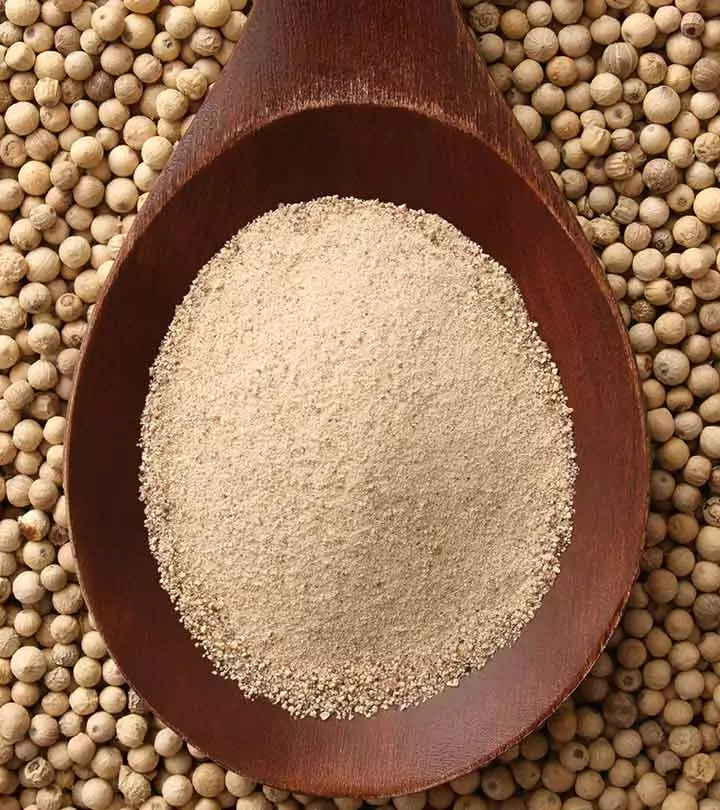
Image: istock
While you might be using black pepper powder commonly in your meals, are you aware that white pepper powder benefits you as well? While both these peppers come from the berries of the same Piper nigrum plant, the difference lies in the way they are picked and processed. White pepper is milder in taste and more processed than black pepper. The outer shell and few nutrients are removed in manufacturing white pepper, leaving behind only the innermost seed.

White pepper is commonly added to dishes as a seasoning for a subtle spicy flavor to balance out other notes and spices. Along with this flavor, they offer you several health benefits as well. In this article, we detail out the differences between black and white pepper and how including white pepper powder in your diet can benefit you overall.
 Know Your Ingredient: White Pepper
Know Your Ingredient: White PepperWhat Is It?
It is spice grounded from the dried berries of the plant Piper nigrum and offers a subtle spicy flavor.
What Are Its Benefits?
It is used as a pain reliever for arthritis to headaches, may aid in digestion, and dental health, cures cough, and may even help in improving eyesight.
Who Can Consume It?
Anyone who does not have diabetes can safely consume it in small amounts. It can also be applied as paste topically to treat acne
How Often?
You can consume it daily but in moderation.
Caution
Overconsumption of white pepper may cause a burning aftertaste, nausea, and intestinal irritation.
In This Article
White Pepper Benefits For Health
White pepper has quite a few benefits in store for one’s overall health. May it be digestive issues, dental issues, diabetes cure, minor headaches, cough, and cold or even weight loss, white pepper can be used to treat all of these! Even for problems as serious as cancer and heart troubles, white pepper has some cures up its sleeve! However, it is important that one uses it correctly and in the right proportions to get the best results.
The following are some of the amazing health benefits of white pepper.
1. Pain Relieving

White pepper, or in fact all peppers contain capsaicin, a hot substance which generates heat (1). This fundamental property of pepper is utilized by using it in pain relieving gels and sprays. Under the impact of capsaicin, one feels the heat being generated in the affected area, due to which pain, resulting from spasms or sprains tends to lessen (2).
2. Arthritis Aid
The piperine in the pepper also has anti-inflammatory properties. It is, therefore, extremely beneficial for all those who have arthritis and suffer from muscular swelling and pain (3).
3. Weight Loss
Due to the presence of capsaicin, pepper helps in burning the fats inside the body and thus helps in losing weight. It is the reason most weight loss medicines and solutions contain capsaicin in them (1), (4 ).
4. Cancer Cure
As per the research conducted at the University of Nottingham and the American Association of Cancer Research, Capsaicin in white pepper can kill some of the cancerous cells. It has been found to be especially beneficial in the cure of prostate cancer; however, further research on this topic is still being done.
5. Headache Healer
White pepper is also quite helpful in treating headaches. A pain in the head develops when the neuropeptide, substance P transmits pain to the brain. However, capsaicin can block this transmission and thus alleviate the symptoms of a headache (5), (6).
6. Cures Cough

Those affected by a bad cough and sore throat must consume white pepper powder with a little bit of raw honey to seek relief. This concoction is great for respiratory health. Raw honey and white pepper combine to have antibiotic properties and also generate heat. Thus, they provide relief from cough and cold easily (7).
7. Decongestant
The heat generated by white pepper can help one clear the nasal tract and relieve nasal congestion. So much so, it can also fight nasal tract infections by cleaning the air ducts and thus help one in breathing properly.
8. Prevents Stomach Ulcers
Consumption of white pepper can kill the ulcer-causing bacteria in stomach and intestines. Therefore, it helps build immunity against stomach ailments such as ulcers and stomach ache.
9. Blood Pressure Control
Since white pepper is rich in flavonoids, and vitamins C and A, it is quite helpful in keeping the blood pressure under control. Individuals having high blood pressure and other related issues must consider including white pepper in their daily diet.
10. Promoting Heart Health

A unique feature of white pepper is that due to its heat generating properties, it causes one to sweat a lot, leading to the expulsion of excess fluids from the body. Here is a fact that too many fluids in the body, especially around the heart, can put a strain on the heart and affect its functioning adversely. It could even lead to water retention in the body, along with difficulty in breathing due to the excessive pressure on the lungs. White pepper can help flush out excess fluids from the body, thereby promoting good heart health.
11. Antioxidant Properties
The presence of flavonoids and vitamins in white pepper is responsible for its antioxidant properties. This makes white pepper a potential fighter against the organisms that might enter the body and harm the cells in it. White pepper also show significant antibacterial and antifungal activity (8).
12. Improves Digestion
A unique trait of white pepper is that it stimulates the taste buds to send a signal to the stomach to secrete hydrochloric acid, which is essential for the digestion of food. Hence, it is a quintessential part of the daily diet we consume.
 Quick Tip
Quick Tip13. Blood Sugar Control
Since white pepper is helpful in boosting the metabolism of the body and also assists the digestion process, it has been found to be beneficial in blood sugar control (9). A mixture of white pepper with fenugreek seeds powder and turmeric, when consumed with a glass of milk each day, can help in bringing down the sugar levels. It is helpful for most of the diabetics.
14. Mineral Source
White pepper is rich in flavonoids, and Vitamins A, K, and C. It contains a large quantity of manganese, iron, and dietary fibers and thus ensures a healthy supply of minerals to the body.
15. Cures Toothache

White pepper powder is known to provide relief from toothaches when used in combination with clove oil or table salt.
16. Prevents Flatulence
For a long time, white pepper and all the other kinds of peppers are known to have carminativei A property, herbal preparation, or drug that helps pass or prevent gas from forming in the digestive tract. properties, due to which it prevents the formation of gas in the intestines (7). It happens as pepper boosts the secretion of hydrochloric acid and assists in carrying out digestion more effectively.
Key Takeaways
- White pepper is a spice made from ripe or mature peppercorns.
- It has a strong flavor and an aromatic fragrance that makes it an ideal choice for Chinese, Thai, and French recipes.
- It has more essential oils and medicinal benefits than black pepper.
- White pepper can be used for relieving pain, aiding weight loss, managing blood pressure, preventing ulcers, and decreasing cancer risk.
Benefits Of White Pepper For Eyes
White pepper has been known to be a beneficial ingredient for some eye ailments such as cataracti A condition where the lens becomes cloudy or hazy due to age and may eventually interfere with your vision. and weak eyesight.
17. Improves Eyesight
White pepper benefits eyes by improving the eyesight of people. Its use along with almond powder, sugar crystals, aniseeds and Triphala powder has been known to help people who are having a weak eyesight. However, it is recommended to seek the advice of a recognized herbal practitioner before using this method as it might not be suitable for certain conditions.
18. Cataract Cure
White pepper is also considered quite effective for seeking a cure to cataract. Combine with almonds in a 1:5 ratio and then mix with brown sugar and ghee. It makes a miraculous cure for cataract that has been tried and tested on many patients.
Benefits Of White Pepper For Skin
It is not advisable to apply white pepper on the skin directly, due to its heat-generating properties. But when regularly consumed, it can help one cure quite a few skin-related issues and ensure good skin health in an easy, cost-efficient, and natural manner.
19. Skin Cancer Prevention
The use of white pepper or black pepper powder on the skin can prevent it from the dangerous UV rays of the sun that can cause skin cancer and other skin ailments (10). However, it is recommended to seek the opinion of a skin expert as this ingredient might not be suitable for all skin types.
20. Vitiligo Curing
Pepper contains piperine, which is a substance that is extremely beneficial for the stimulation of pigmentation on the skin (7). It is an ideal solution for a condition like vitiligo, in which skin starts losing its pigments and turns white. The best thing about using pepper for this purpose is that it is completely natural and has no side effects as against the chemical-based medicines.
21. Wrinkle Removal

Due to the high content of antioxidants in white pepper, it is a wonderful remedy for fine lines, wrinkles, and dark spots, which are some of the prominent signs of aging. Using pepper in everyday diet can help you look beautiful and young for a longer time!
22. Exfoliation
Pepper is an excellent exfoliator and can be used to make a scrub for removing the dead skin cells from the skin. Use freshly crushed white pepper for this purpose. The use of this scrub helps one remove the toxins from the skin to attain a soft and radiant skin. At the same time, due to the anti-oxidant properties of pepper, it would promote the circulation of blood and oxygen in the skin making it more energized and fresh-looking.
23. For Removal Of Unwanted Hair
Unwanted hair on the skin can be removed permanently by using white pepper with camphor. Mix these two ingredients with almond oil and allow the mixture to stay on the skin for 10-15 minutes. It helps in the removal of the hair permanently. However, one should try this method on a small part of the skin to see if it suits one’s skin type or not. Later it can be tried on the legs and arms. However, don’t use it on tender parts like underarms and bikini line.
Benefits Of White Pepper For Hair
White pepper powder has heat generating properties. It is, therefore, effective in the removal of dandruff from hair. At the same time, it is also a useful remedy for the revitalization of hair.
24. For Dandruff Cure
White and black peppers are considered wonderful ingredients that can be used to cure dandruff problems (7). Combine white pepper with curd and apply this mixture on the scalp. Wash off the mixture with water after half an hour of application. The application of this mixture helps miraculously to remove the dandruff on the scalp. Do not allow the mixture to stay for more time as it could burn the scalp skin.
25. Hair Revitalizer
White pepper also works as a hair revitalizer when used in combination with lemon seeds. Apply the mixture on the hair and leave for 10-15 minutes. Wash it off to make your hair shiny, lustrous and soft.
You can add white pepper to your daily diet to reap these benefits. You can start with the following delicious recipe.
White Pepper Recipe
Creamy White Pepper Pasta

What You Need
- 250 g of fettuccine pasta
- 1 tablespoon of olive oil
- 2 garlic cloves, minced
- 1 cup of heavy cream
- ½ cup of grated Parmesan cheese
- 1 teaspoon of ground white pepper
- Salt, to taste
- Fresh parsley, for garnish
What You Have To Do
- Boil the fettuccine pasta in salted water. Drain and set aside.
- Heat olive oil in a pan over medium heat. Add the minced garlic and sauté.
- Pour in the heavy cream and add grated parmesan and ground white pepper. Cook until the sauce thickens.
- Toss the cooked pasta in the creamy sauce until well-coated. Season with salt to taste.
- Garnish with chopped fresh parsley and an extra sprinkle of white pepper.
White pepper not only looks great in a variety of recipes but also significantly contributes to the flavor enhancement of everyday dishes. Scroll down to learn its culinary uses.
Culinary Uses Of White Pepper
White pepper is a versatile spice. Its use is common in various cuisines. Here’s how you can use it to enhance any flavor palette.
Sprinkle into light-colored sauces, soups, and mashed potatoes for subtle heat.
- Mix into seafood dishes for delicate seasoning.
- Incorporate into French sauces and soufflés for a refined taste.
- Add to Chinese, Thai, and Vietnamese dishes to enhance their flavors.
- Rub into poultry, pork, or lighter meats for a mild heat.
- Blend into salad dressings or cold salads like coleslaw for smooth flavor.
- Stir into egg dishes to add flavor without visible specks.
Difference Between Black And White Peppers
Black pepper is the unripe fruit from the pepper wine, which is green in color. It is cooked and dried to give it a black, shriveled crust. On the contrary, white pepper is the ripe fruit of the pepper wine which is dark red in color when in the wine. It is soaked in water for nearly 15 days, after which its skin begins to fall off. Once the skin falls off, the white seed inside the pepper fruit is what is dried and used as white pepper whole or powder.
When it comes to flavor, both black and white pepper have a kick in their taste. They offer a tangy and spicy flavor when added to the preparations. However, black pepper is spicier and has a citrusy taste with an earthy flavor. On the other hand, white pepper is sharp in its taste and also has a pungent aroma.
Since both come from the same plant, white and black pepper benefits are quite similar. They also tend to have similar qualities with only slight differences in aroma and flavor. They are rich in Vitamins K, A, and C and are also a good source of dietary fiber. At the same time, they contain less sugar and zero cholesterol.
Let us find out some differences between the two, so that when you prepare Alfred Sauce next time, you know why you are using white pepper in it!
1. Difference In Processing And Flavor Profile
White and black peppers, both are fruits of Piper Nigrum or pepper plant found in Southern Asia. But they differ in the way they are processed. Black peppercorns are plucked when they are almost ripe. Then, they are sun dried to be shriveled. This process makes the outer black layer of black pepper, resulting in a spicy flavor. On the other hand, white peppercorns are left to ripen on the plant itself. Then they are left in bags containing water for a few days to make their outer layer soft. The ripe berries soaked to remove the outer layer, leading to a milder flavor that is often described as earthy and pungent. After that, they are left under the sun to be bleached white.
 Trivia
Trivia2. Difference In Aroma
Both white and black peppers are close siblings in some regard. But the conflicting difference in their aroma sets them truly apart from each other. Most of the chefs agree that black pepper has an intense aroma when compared to the subtleness of white pepper.
3. Difference In Hotness
White pepper offers instant hot flavor. Black pepper may also be equally hot, but you can realize its hotness slowly after chewing it. As a matter of fact, it depends on your personal taste preference as well!
4. For The Sake Of Aestheticism
White pepper lends an aesthetic touch to white sauces, soups, and mashed potatoes. It is overtly done to give a finer look to light colored dishes where visible black flakes may not be so appealing.
5. Amount Of Essential Oils
It is a proven fact that black ground pepper is rich in essential oils when compared to white ground pepper. It has nearly 3% essential oils in its composition.
6. Preferred In Different Cuisines
Their origin may be same but white and black peppers are preferred differently in various cuisines. Most of the international and intercontinental cuisines use black pepper. But in Chinese, Thai, and French cuisines, white pepper is used more often. Their aromatic and tingling taste enhance the flavor of these cuisines.
7. Difference In Odor
As black pepper has its outer fruit layer intact, it contains odor-forming terpenes in it. These compounds give the floral and woody flavor to it. However, in white pepper, these scents are found missing due to the removal of this outer layer. White pepper has a mushy odor developed during its fermentationi A chemical process that uses bacteria, yeast, or fungi to convert sugar or starch into an acid or alcohol. .
8. Medicinal Values
White pepper carries more medicinal values when compared to black pepper. In ancient Ayurvedic and Chinese therapies, white pepper is widely used for treating arthritisi A condition characterized by swelling of joints, which causes pain, stiffness, and difficulty in movement. , malaria, constipation, joint pain, nasal congestion, food poisoning, nausea, and cholera, to name a few.
9. Extent Of Allergies
It is found in some studies that people allergic to pepper as a whole, react more badly to black pepper. This is primary because white pepper is only the seed of the plant while black pepper is the whole fruit. As such, the composition of black pepper is intense and causes allergic reactions.
10. Difference In Shelf Life
Black pepper has a longer shelf life when compared to white pepper. It can be stored in your kitchen without getting its aromatic flavor spoiled. But in the case of white pepper, you can’t store it for a longer period as it will develop a bitter taste on rotting.
Infographic: 9 Top Health Benefits Of White Pepper Powder
The same pepper plant that gives black pepper is the source of white pepper powder, which offers an array of health benefits. When included as a part of the diet, white pepper powder can aid in the management of a range of severe and chronic ailments like diabetes and cardiovascular disease.
The infographic below lists the significant health benefits of white pepper powder. Check it out!
Some thing wrong with infographic shortcode. please verify shortcode syntaxWhite pepper powder’s benefits are numerous. It can effectively manage pain, aid in weight loss, control blood pressure, and reduce the risk of ulcers. It also helps manage cataracts and reduce cancer risk. Some even use it as an exfoliator. Try including white pepper in your dishes in moderate amounts to reap its benefits.
Frequently Asked Questions
Does white pepper activate turmeric?
Yes, the presence of piperine in white pepper helps activate turmeric (11).
What is the nutritional value of white pepper?
A tablespoon of white pepper contains 4.87g carbohydrates, 0.151g fat, 0.738 g protein, 1.86 g dietary fiber, and 21 kcal energy (12).
What are the side effects of white pepper powder?
There are no significant side effects related to white pepper powder. However, it may cause allergic reactions in some people. Always use in moderation if you are not sure about the allergy.
Why is white pepper costly?
White pepper is costlier than black pepper because of the difference in processing. Its harvesting is a more labor-intensive process than the other varieties.
Who should not eat white pepper?
Anecdotal evidence says the piperine present in white pepper may increase the risk of bleeding. People with bleeding disorders and who are allergic to white pepper should avoid consuming it.
Can white pepper powder be used in cooking or added to food, and what are some common culinary uses?
White pepper is a common ingredient used in light-colored dishes like pies, casseroles, soups, sauces, and mayonnaise.
Can white pepper powder improve cognitive function or brain health, such as by enhancing memory or reducing age-related decline?
Yes, the piperine present in white pepper possesses anti-depression-like properties and may help improve cognitive function (13). However, further studies are warranted.
Illustration: Top Benefits Of White Pepper For Skin, Hair, & Health
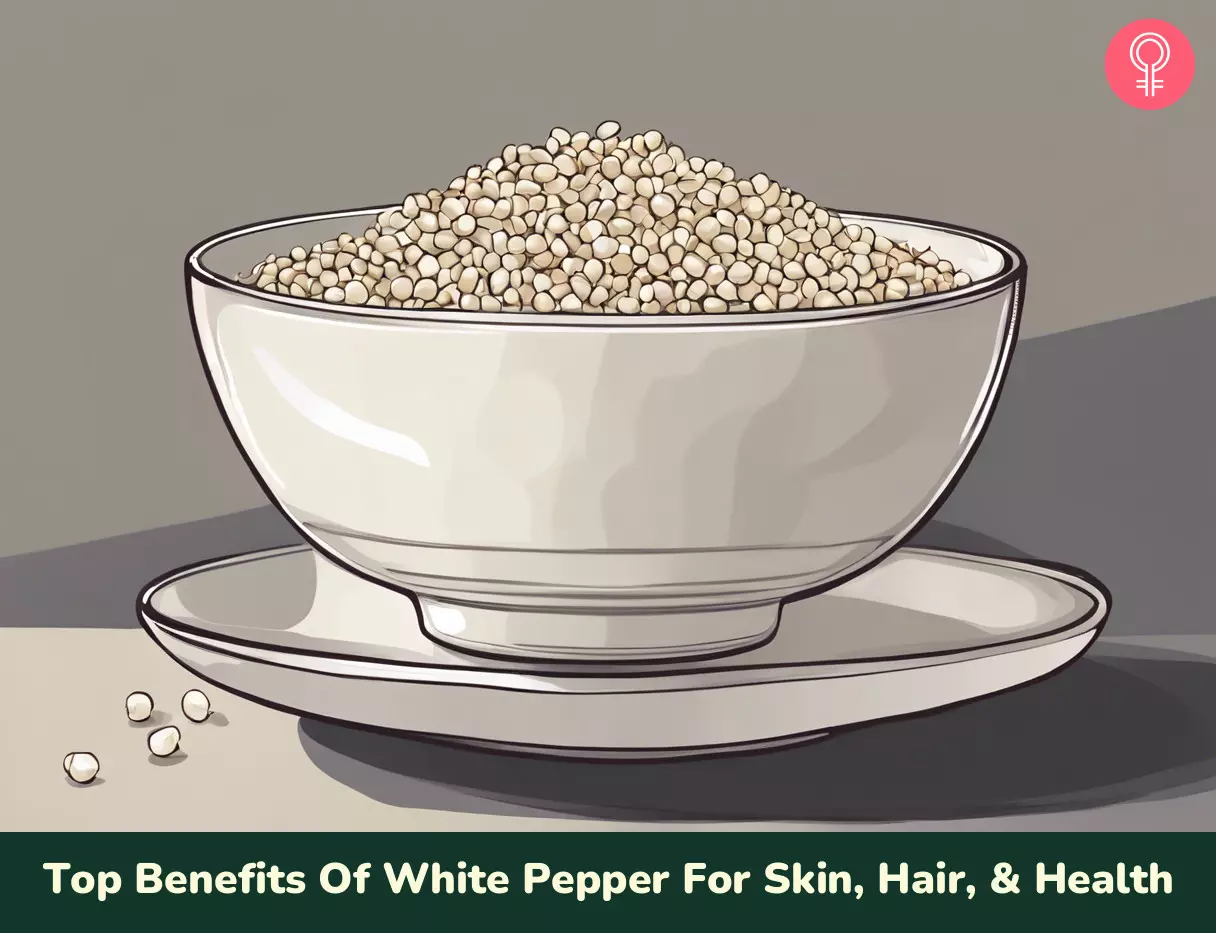
Image: Stable Diffusion/StyleCraze Design Team
Watch this video and discover the nuances between black and white pepper, and understand when and how to use these spices, as you unlock new flavors on your culinary journey.
References
Articles on StyleCraze are backed by verified information from peer-reviewed and academic research papers, reputed organizations, research institutions, and medical associations to ensure accuracy and relevance. Read our editorial policy to learn more.
- Enzymatic retting of Piper nigrum L. using commercial Pectinase
https://www.jchps.com/issues/Volume%208_Issue%202/jchps%208(2)%2037%20SEH%20008%20Dayang%20Syahreeny%20Bt%20Abang%20Mustafa%20360-364.pdf - Topical capsaicin for pain management: therapeutic potential and mechanisms of action of the new high-concentration capsaicin 8% patch
https://www.ncbi.nlm.nih.gov/pmc/articles/PMC3169333/ - Anti-inflammatory and antiarthritic effects of piperine in human interleukin 1β-stimulated fibroblast-like synoviocytes and in rat arthritis models
https://www.ncbi.nlm.nih.gov/pmc/articles/PMC2688199/ - Dietary capsaicin and its anti-obesity potency: From mechanism to clinical implications
https://www.researchgate.net/publication/316319164_Dietary_capsaicin_and_its_anti-obesity_potency_From_mechanism_to_clinical_implications - Piperine—The Bioactive Compound of Black Pepper: From Isolation to Medicinal Formulations
https://www.scinapse.io/papers/2551154560 - Enhanced oral bioavailability of piperine by self emulsifying drug delivery systems: in vitro, in vivo and in situ intestinal permeability studies
https://www.tandfonline.com/doi/pdf/10.3109/10717544.2014.898109 - King of Spice: Pepper ( Piper nigrum) is a Gift to Homo Sapiens
https://www.researchgate.net/publication/344694496_King_of_Spice_Pepper_Piper_nigrum_is_a_Gift_to_Homo_Sapiens - Chemistry, Antioxidant and Antimicrobial Potentials of White Pepper (Piper nigrum L.) Essential Oil and Oleoresins
https://www.researchgate.net/publication/257808607_Chemistry_Antioxidant_and_Antimicrobial_Potentials_of_White_Pepper_Piper_nigrum_L_Essential_Oil_and_Oleoresins - Effect of Piperine on the Pharmacokinetics and Pharmacodynamics of Glimepiride in Normal and Streptozotocin – Induced Diabetic Rats
https://www.researchgate.net/publication/233534388_Effect_of_Piperine_on_the_Pharmacokinetics_and_Pharmacodynamics_of_Glimepiride_in_Normal_and_Streptozotocin_-_Induced_Diabetic_Rats - Piperine: A comprehensive review of methods of isolation, purification, and biological properties
https://www.sciencedirect.com/science/article/pii/S2590098620300142 - Curcuma longa extract associated with white pepper lessens high fat diet-induced inflammation in subcutaneous adipose tissue
https://pubmed.ncbi.nlm.nih.gov/24260564/ - Spices, pepper, white
https://fdc.nal.usda.gov/fdc-app.html#/food-details/170933/nutrients - Piperine, the potential functional food for mood and cognitive disorders
https://pubmed.ncbi.nlm.nih.gov/18639606/
Read full bio of Dr. Nisha R
Read full bio of Tanya Choudhary
Read full bio of Ravi Teja Tadimalla
Read full bio of Himanshi Mahajan





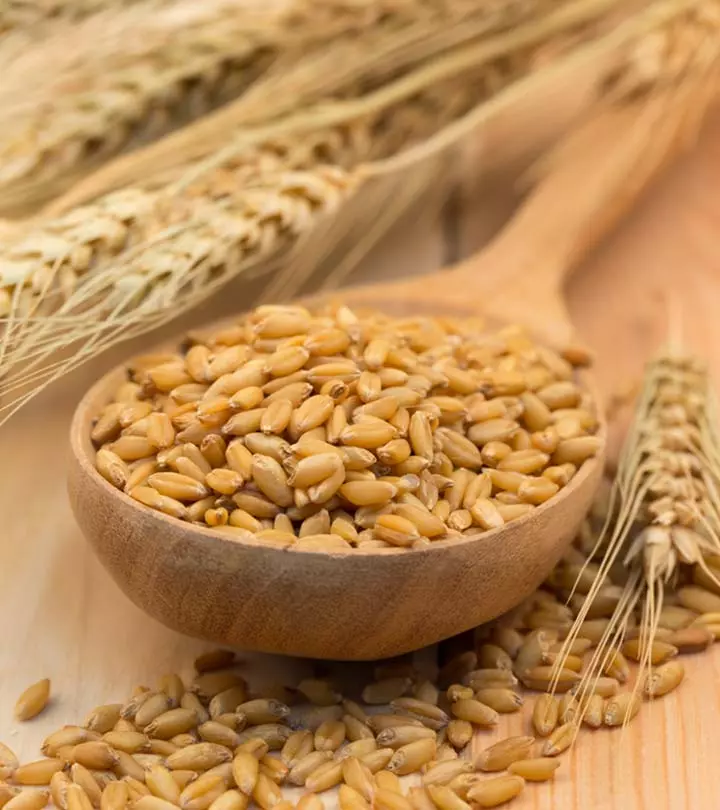
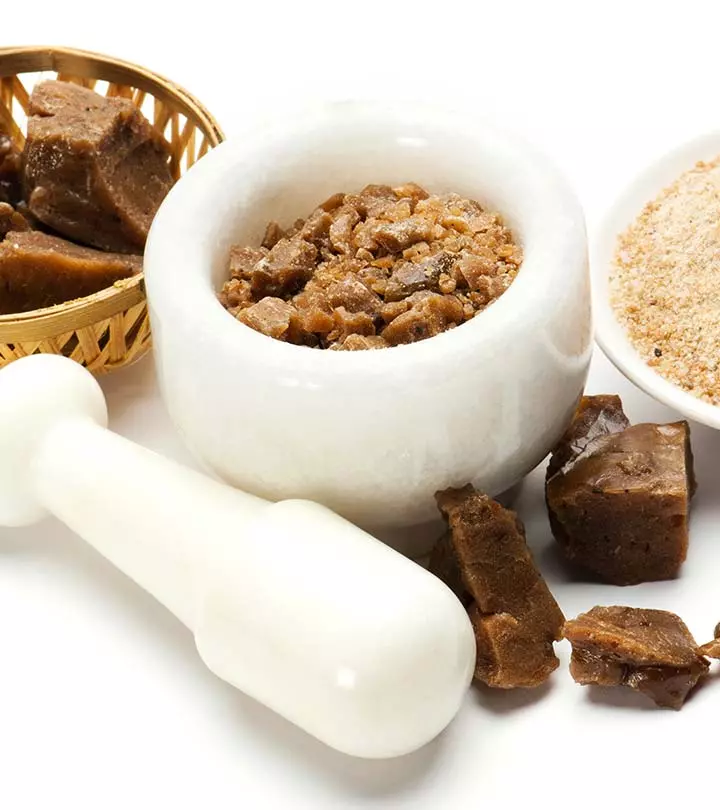

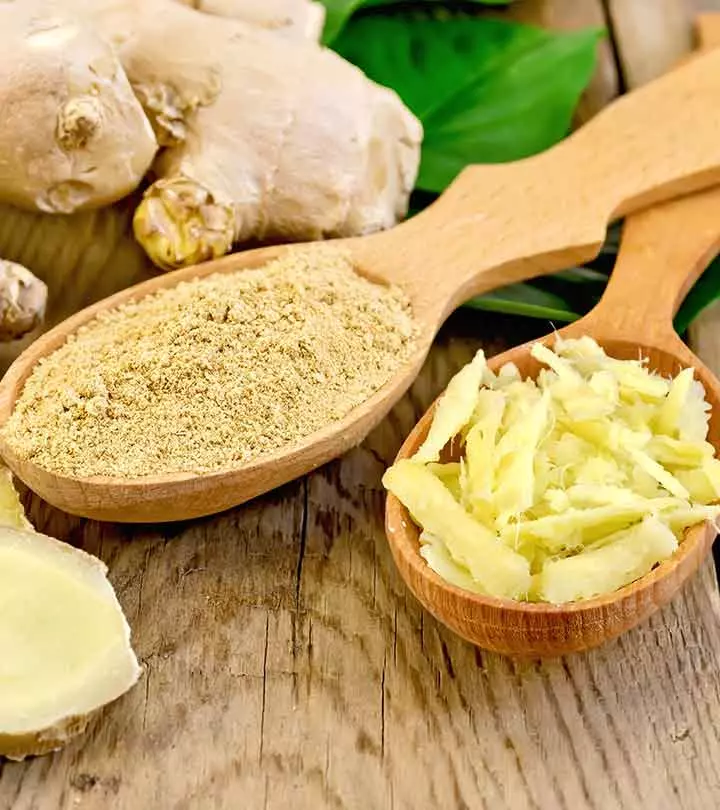
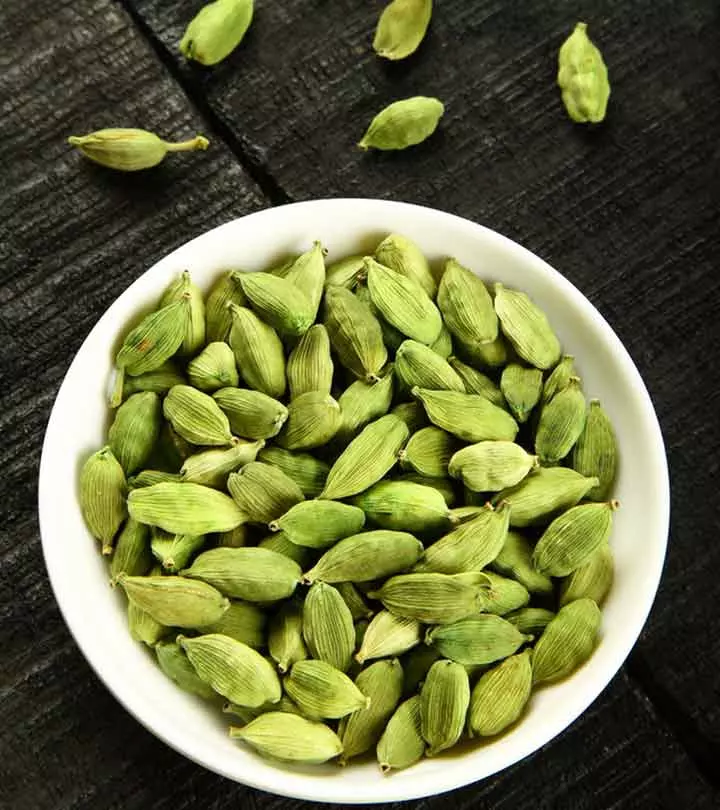
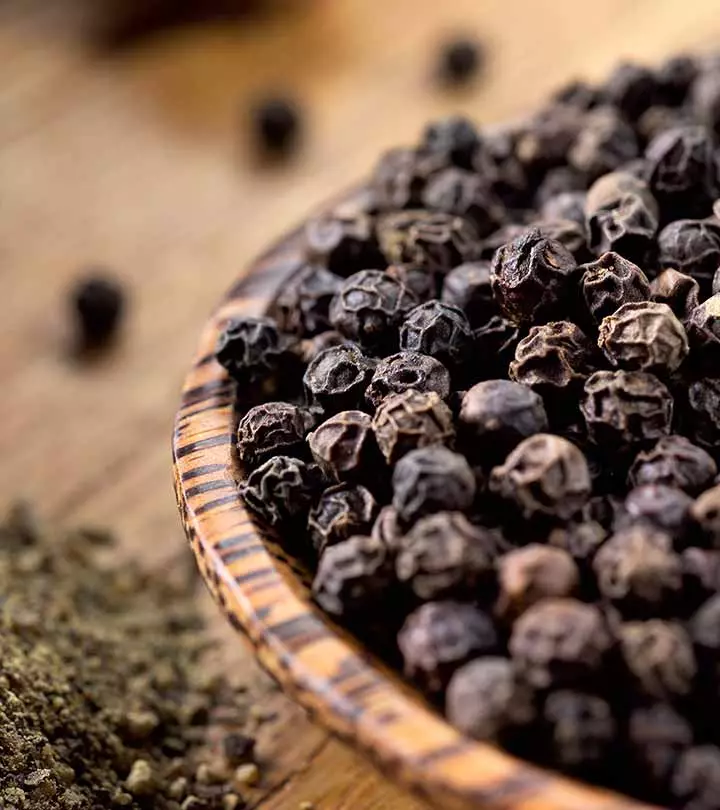
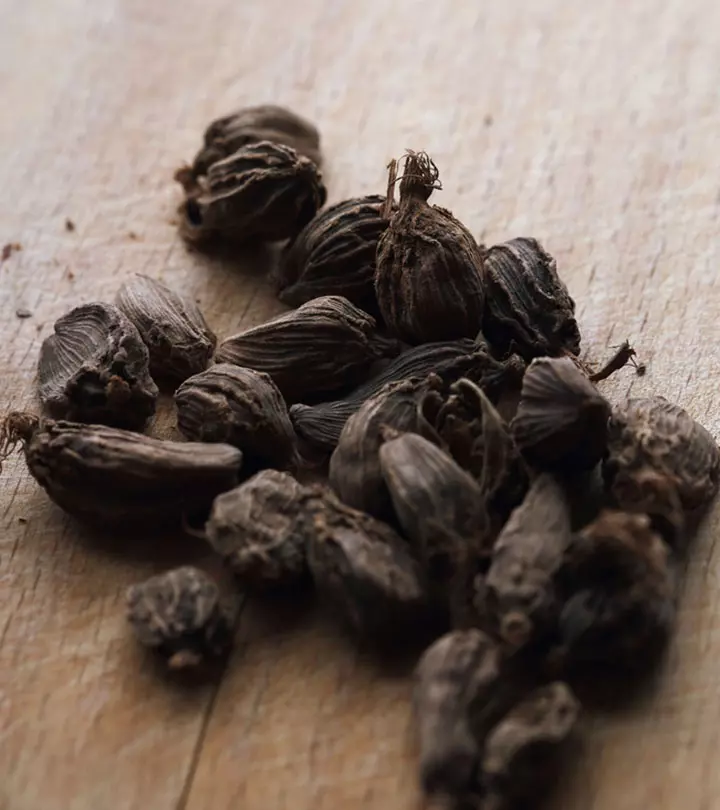

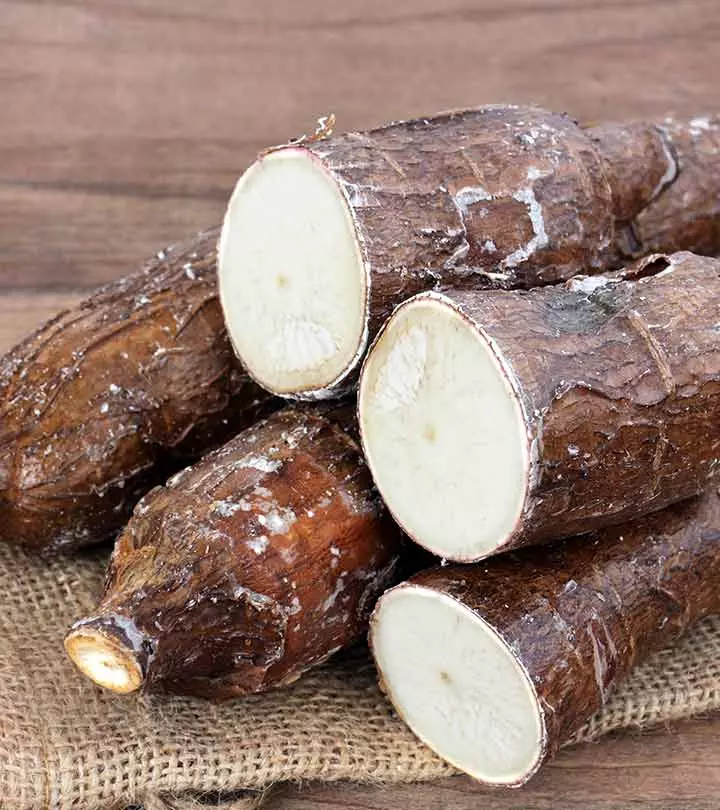
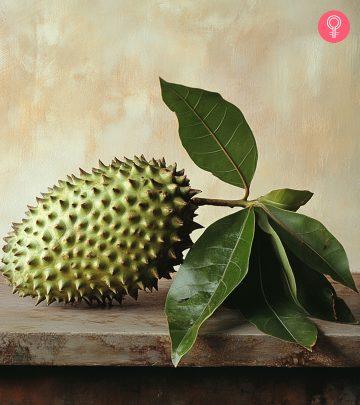
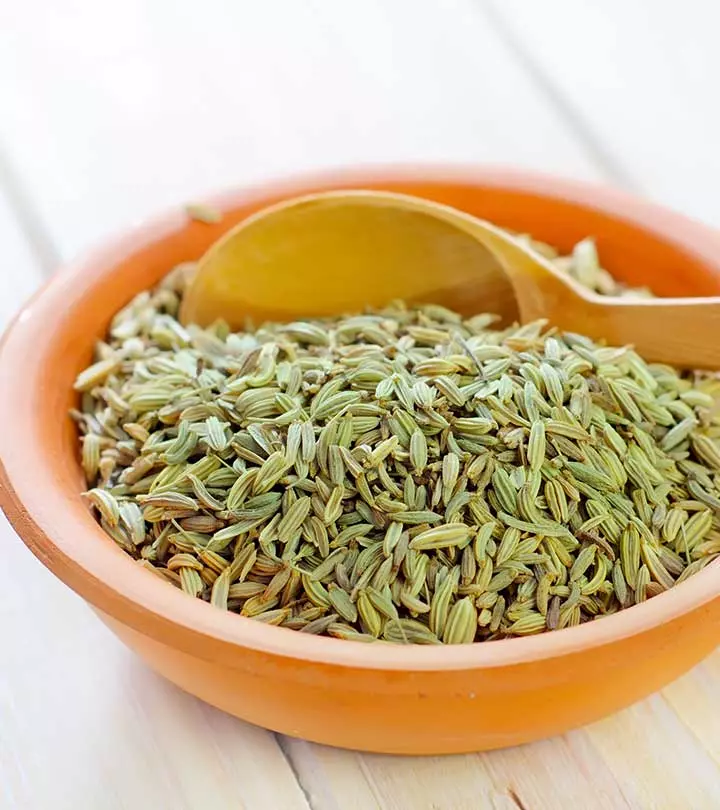

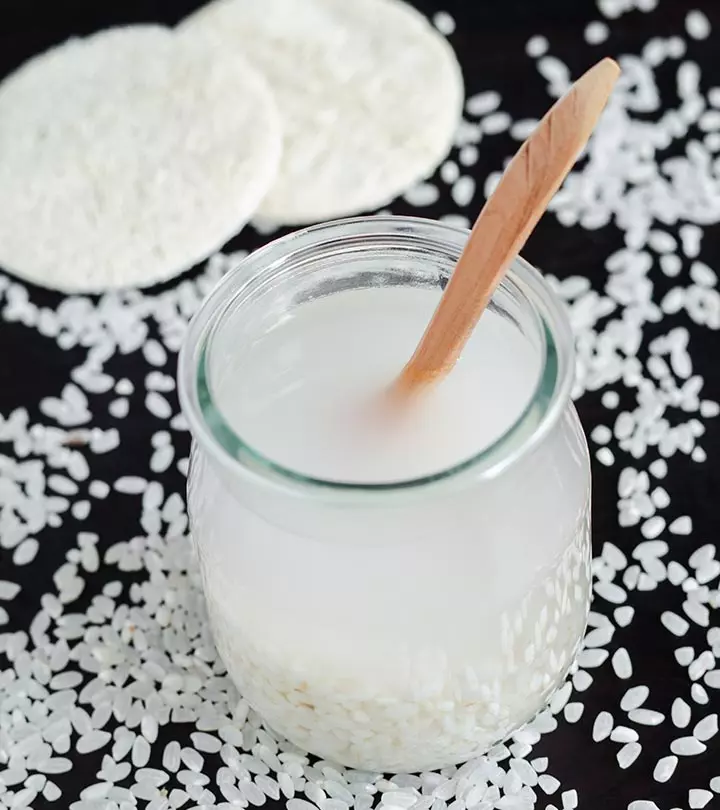

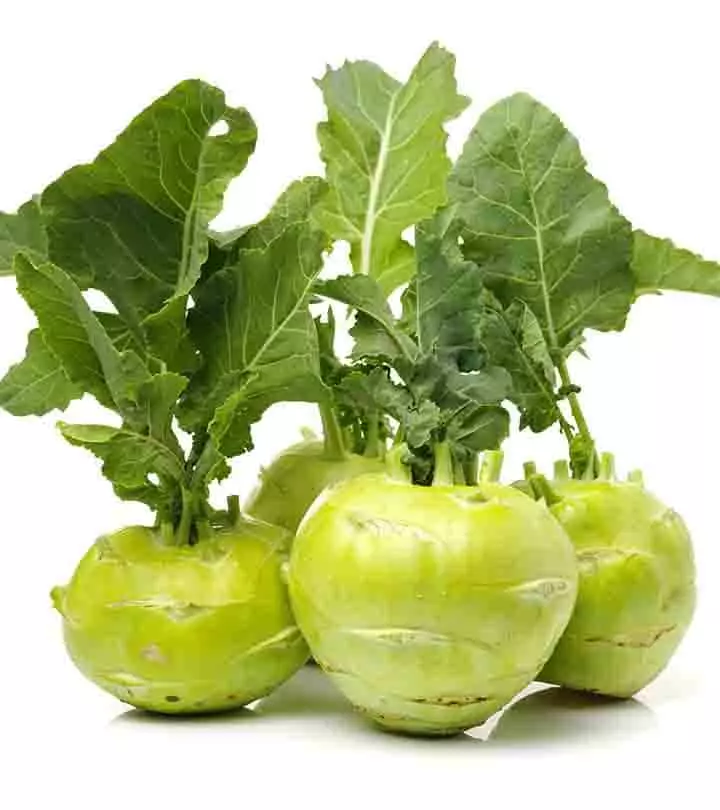

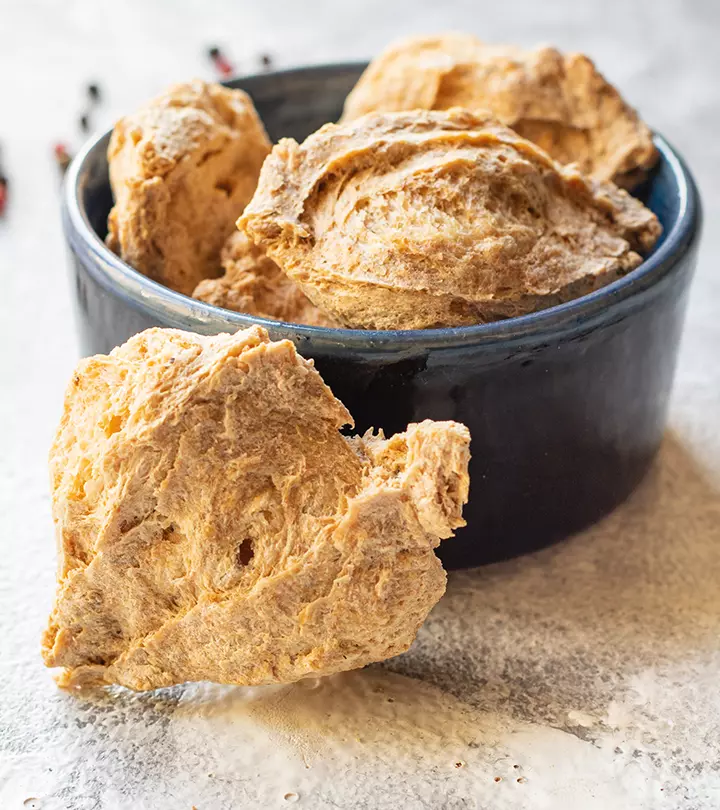
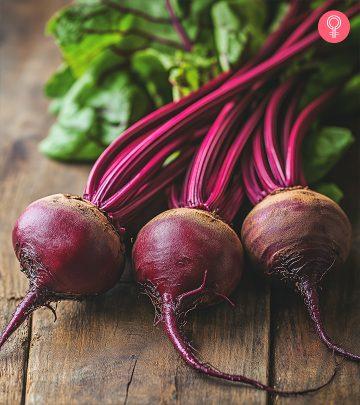
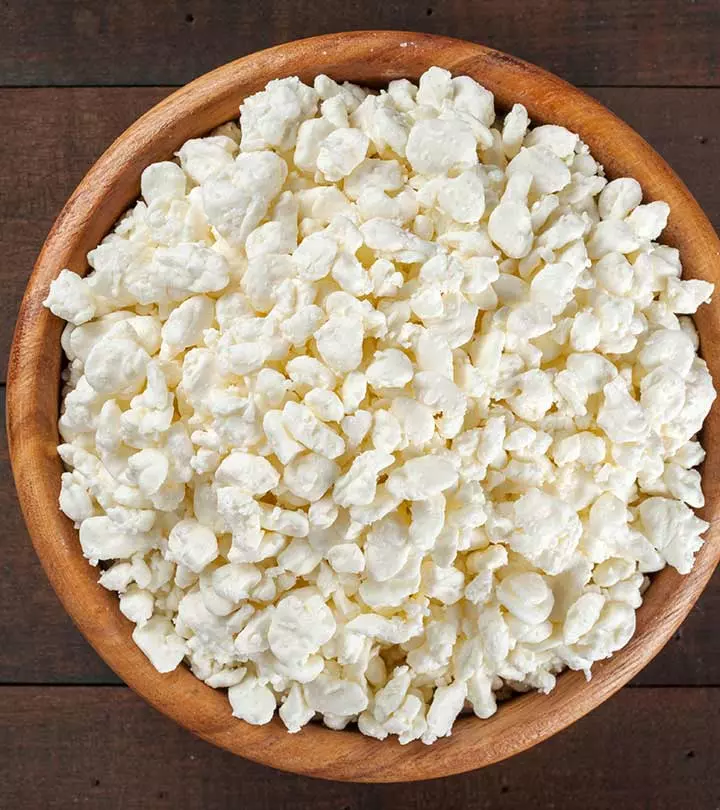

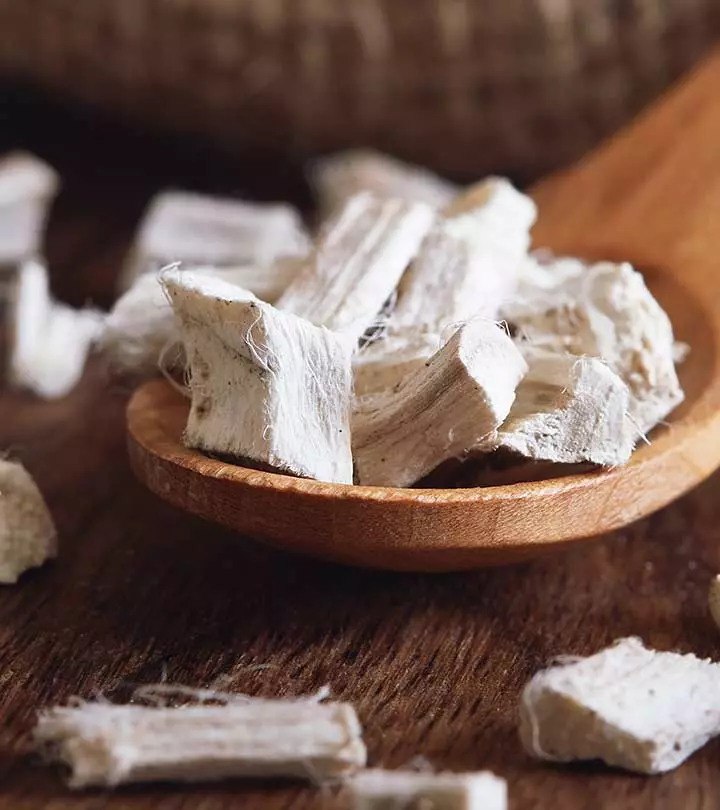
Community Experiences
Join the conversation and become a part of our empowering community! Share your stories, experiences, and insights to connect with other beauty, lifestyle, and health enthusiasts.